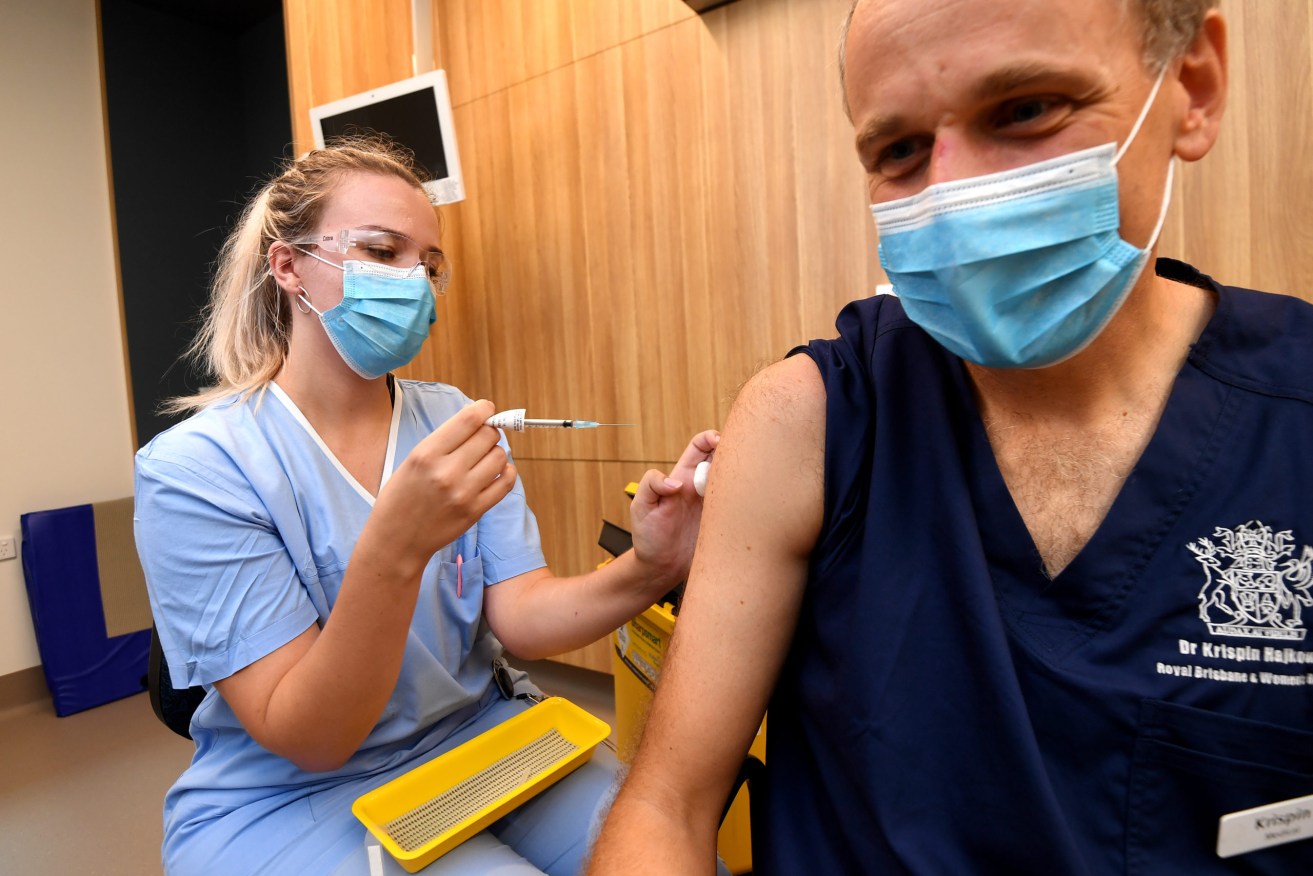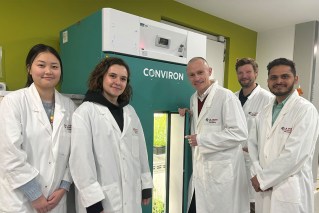Fate worse than death: If Covid doesn’t kill, it can make you weaker, slower
The official statistics suggest most Australians infected with COVID-19 have ‘recovered’ – including 1,727 people in Queensland. Some might not feel that way.

Three out of every 10 adults are yet to get their latest booster vaccine. (AAP Image/Dan Peled)
Queensland has reported seven deaths from 1,886 cases of COVID-19, all of whom died before the vaccines were available and had pre-existing health conditions. While older people remain most at risk, the Delta variant is now being carried by more young people, and the Brisbane outbreak is spreading through families and schools.
If the Brisbane outbreak illustrates the changing nature of the virus, during a long pandemic, the Sydney outbreak serves as a reminder of the dangers: five deaths in one day, as seemingly healthy, younger people succumb to the virus.
Amid a push to ramp up vaccinations across Australia, doctors are highlighting not only the more contagious nature of the Delta variant, and the risk of death, but also the possibility that survivors will suffer for months after they have supposedly recovered.
So-called ‘long COVID,’ also known as post-acute COVID-19, is now being reported more often, as even the countries emerging from the pandemic struggle with the hangover of reduced productivity and performance.
While the prevalence in Queensland is not known, a study of NSW patients from the first wave found 80 per cent recovered within a month, but almost five per cent were still experiencing symptoms three months later.
Research overseas suggests the proportion of recovered patients with lingering symptoms is much higher. More research is being conducted, in part to ensure people do not go without help, but experts say this trend is another example of why COVID-19 is more dangerous than influenza.
Dr Krispin Hajkowicz said he knew of five cases of post-acute COVID-19 among people who were infected in the first wave, in March and April last year, but then struggled long after they were discharged from the Royal Brisbane and Women’s Hospital.
“Most of them are young people who acquired Covid in the UK and then had persistent symptoms through the year,” said Hajkowicz, a COVID-19 specialist in the Metro North Hospital and Health Service.
Common symptoms included feeling generally unwell, fatigued, a loss of smell and ‘brain fog’ – which Hajkowicz noted was also being reported by his medical colleagues overseas, who were infected and needed to get back to work to treat others.
Queensland Health normally hospitalises all those who test positive, but due to the current outbreak has opted to treat some at home, while also allowing some parents to stay in hospital with their child patients. One patient is currently in intensive care.
Hajkowicz said the health system was still saving people, but those who had no personal experience with COVID-19 should consider the toll it takes on patients who survive.
“We isolate people in hospital for very good reason but it’s lonely, quite hard mentally, quite a strain, and some people have trouble moving back into the community because they are ostracised by friends and even family,” Hajkowicz said.
The majority of Hajkowicz’s patients had been laying low overseas, until they were allowed to fly back into Australia, then quarantined and shifted into hospital when they became sick. That could keep them from loved ones and their social network for months.
“We’ve had a few people through who were bereaved at the same time, grieving for someone who has died from COVID-19,” Hajkowicz said.
Hajkowicz said vaccination not only reduces the chance of death but also post-acute COVID-19, something the Royal Australian College of General Practitioners is also seeking to highlight, particularly for healthy, young people.
The RACGP has pointed to research by Imperial College in London that found over a third reported at least one symptom 12 weeks later. There is emerging evidence that it may also affect mental performance, including in children.
“Long COVID symptoms, including serious neurological, cardiac and psychiatric issues, can severely compromise your quality of life and we do not have a full picture of what it will mean for patients in the years ahead,” said RACGP President Karen Price.
“The decision-making matrix must change and my message to all patients is straightforward – this needs to be taken seriously. There are reports of ‘long haulers’, including young and otherwise healthy people, requiring long-term medical care, struggling psychologically, unable to work or even walk up a flight of stairs without pausing multiple times to catch their breath.”
Retired Melbourne school teacher Audrey Cooke told the RACGP she had been highly active and had no underlying health issues before she contracted COVID-19.
“I recovered from the initial COVID-19 symptoms in about two to three weeks, but that was only the beginning,” Cooke said.
“I experienced symptoms including fatigue, loss of smell, shortness of breath and chest tightness for 10 months, as well as double vision.
“We need to boost awareness of long COVID. This is a major problem for some people who have contracted COVID-19 and should not be taken lightly.”












